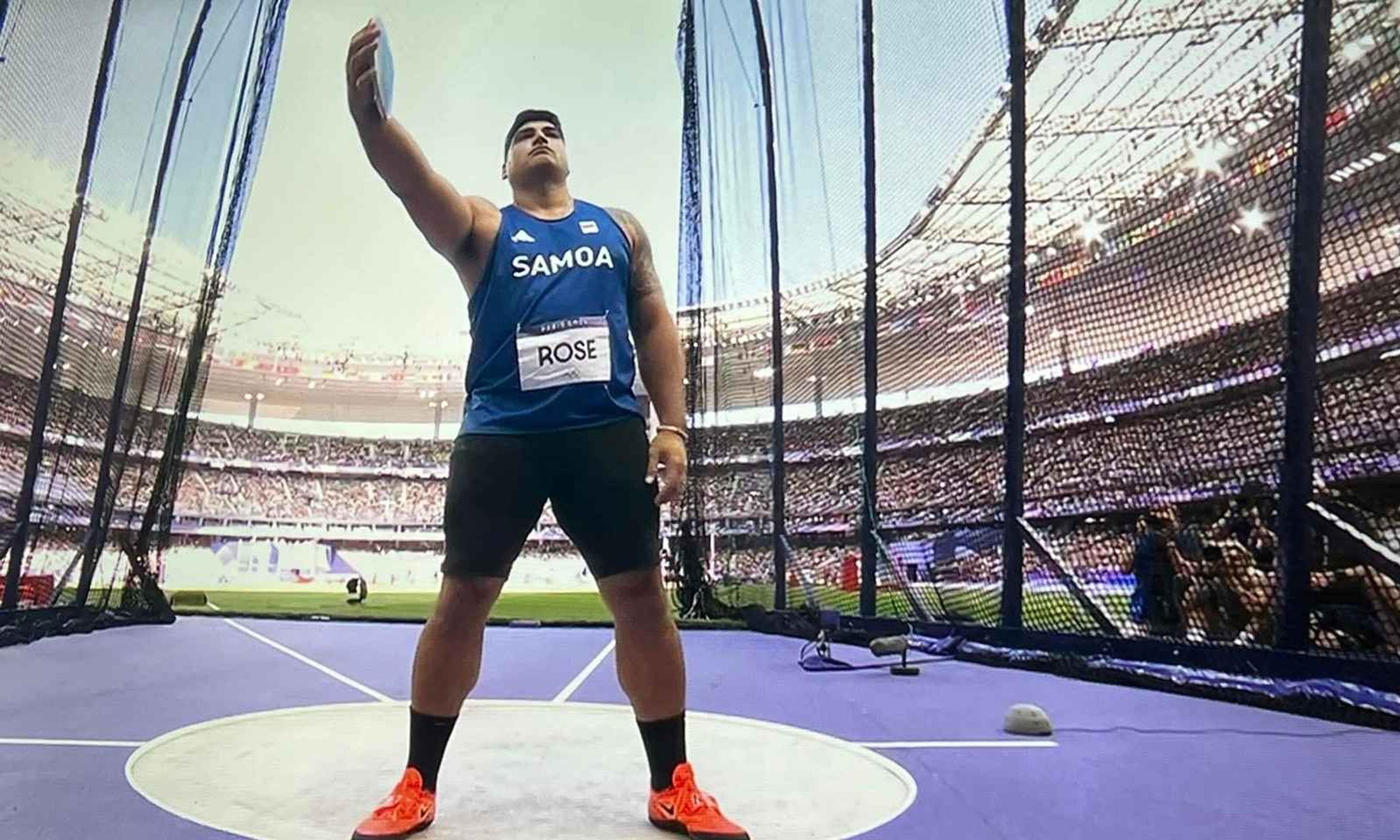

Lluis Viñals Torres, Director of Health Systems and Services at WHO Western Pacific, says access to services is the main barrier to equitable care.
Photo/World Health Organization/File
WHO pushes for safer, affordable surgeries across the Pacific
The World Health Organization says too many Pacific families still face unsafe, delayed, or unaffordable surgery, urging regional action.

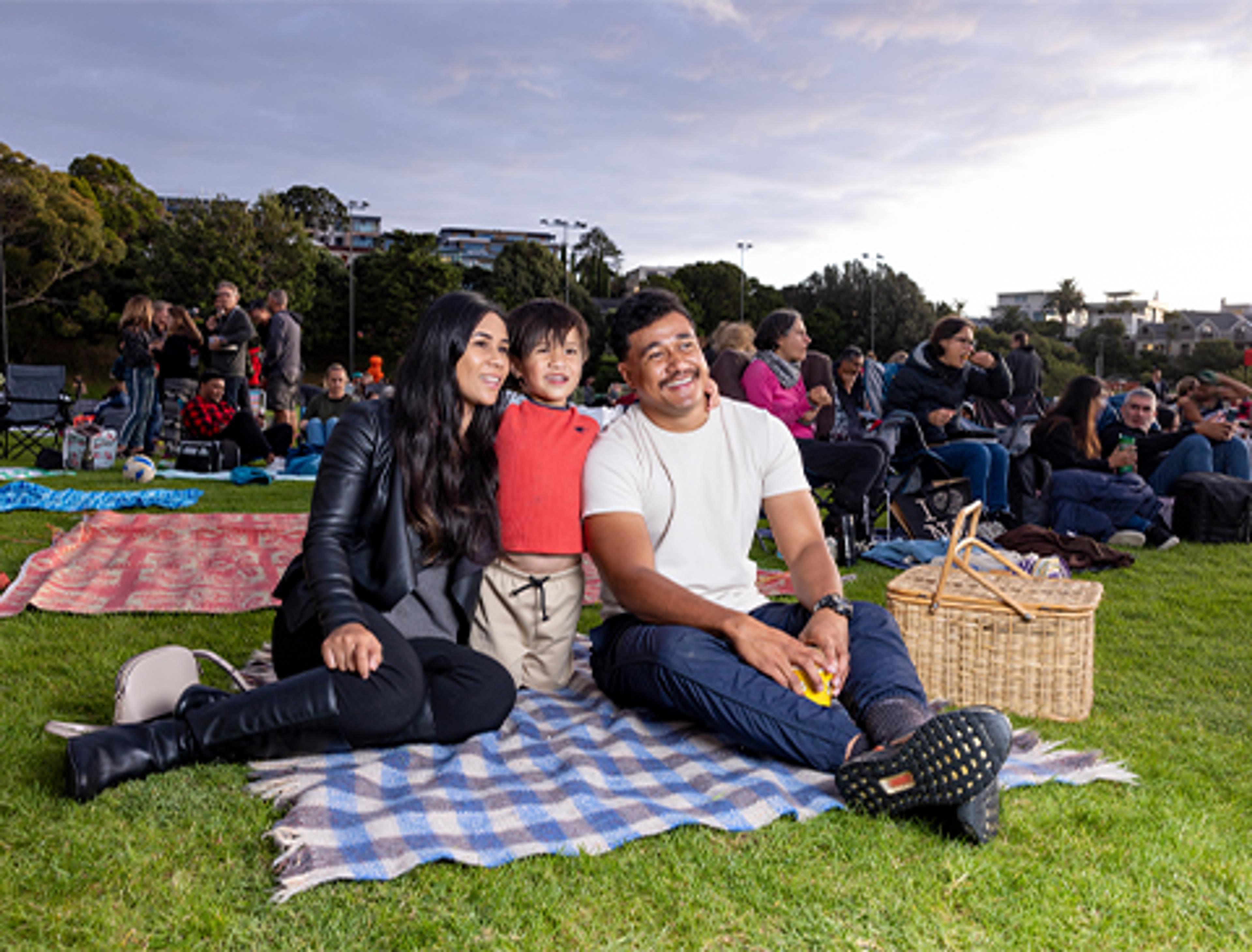
Pack your tissues: Free movies return with Tinā set for South Auckland

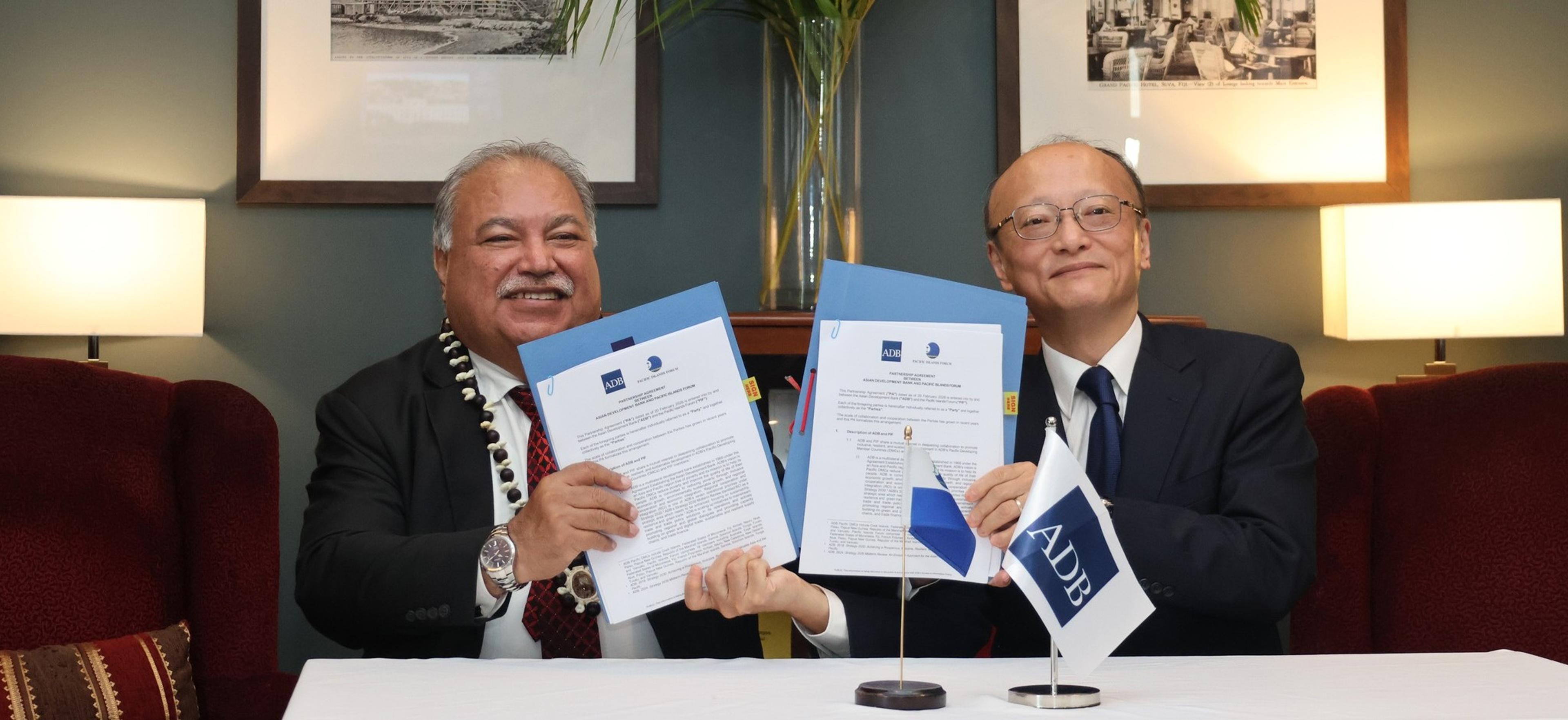
Asian Development Bank expands Pacific footprint with Suva hub and new PIF agreement


Pack your tissues: Free movies return with Tinā set for South Auckland


Asian Development Bank expands Pacific footprint with Suva hub and new PIF agreement
Surgery is meant to save lives, but in the Western Pacific, it can lead to financial hardship, long delays, or preventable deaths.
The World Health Organization (WHO) is urging health ministers to prioritise safer surgical practices within the region.
The Western Pacific is one of six WHO regions, covering countries including China, Indonesia, and Japan.
Lluis Viñals Torres, Director of Health Systems and Services at WHO Western Pacific, says access to basic surgical and medical services is the region’s most pressing challenge.
“Across the region, people are dying because they can’t get timely or safe surgery,” he says. “The biggest problem isn’t just cost. Many communities simply can’t reach the services they need. Before we talk about financial hardship, people first need to be able to use the services. That’s where the Pacific is falling behind.”
Many Pacific nations, including Sāmoa, Tonga, and the Solomon Islands, rely on overseas treatment in New Zealand or Australia for complex surgeries. Viñals Torres says this is costly and unsustainable and points to opportunities for Pacific countries to pool resources, such as joint procurement of medicines and shared regulatory systems.
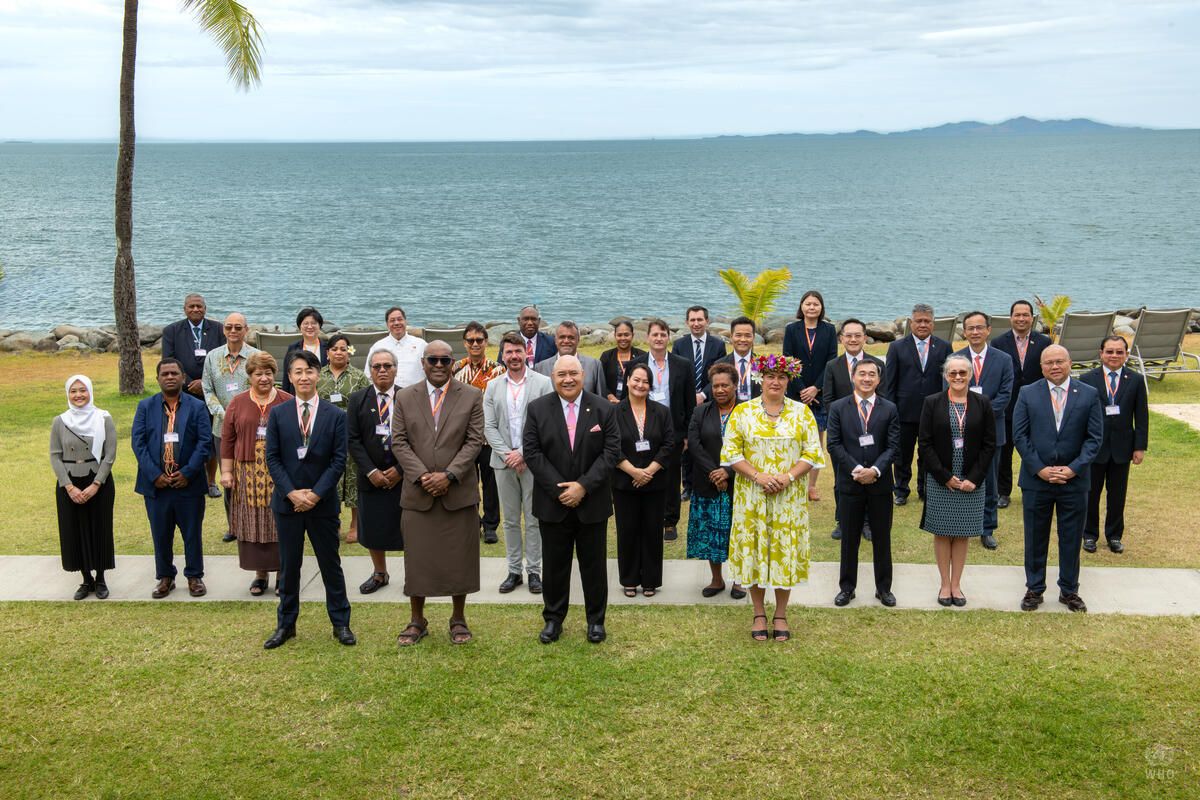
Heads of Delegations at the start of the 76th session of the World Health Organization Regional Committee for the Western Pacific in Nadi, Fiji. Photo/WHO/Mark Vincent Limchoa
“You don’t need every country to have its own high-level regulatory agency,” he says. “By working together, we can build scale and make the whole region stronger. Basic interventions like managing diabetes or screening for non-communicable diseases should be available locally, but for complex procedures, we need stronger regional collaboration.”
He adds that governments must take responsibility for ensuring essential surgical care is publicly funded and accessible to all.
“Health systems should be built on public, pooled resources, not by taxing people when they’re sick,” he says. “Pooling funds means the healthy support the sick, the rich support the poor, and younger generations support older ones.”
While models from countries like Malaysia and Thailand offer valuable lessons, Viñals Torres says Pacific nations need solutions that reflect their unique realities and advises against copying existing systems.
Watch Lluis Vinals-Torres' full interview below.
Fiji leading regional discussions
The comments come as health leaders from 38 countries meet in Fiji this week for the 76th session of the WHO’s Regional Committee for the Western Pacific.
For the first time in over a decade, a Pacific nation is hosting the meeting, which will set health priorities for the region’s 2.2 billion people. Pacific nations in attendance include American Sāmoa, the Cook Islands, French Polynesia, Fiji, Guam, Kiribati, the Marshall Islands, the Federated States of Micronesia, New Caledonia and Tonga.
The committee focused on tackling non-communicable diseases, including alcohol and tobacco control, integrating oral health into primary care; addressing the health impacts of climate change; and boosting preparedness for health emergencies. Leaders also explored the use of artificial intelligence to expand access to health services and respond to a resurgence of HIV.
Dr Ratu Atonio Rabici Lalabalavu, Minister of Health and Medical Services, says Fiji last hosted the event in 1984, emphasising the importance of local leadership health matters.
“Pacific leadership in health is very, very critical because of the context in which the Pacific Island nation views health in terms of the challenges, especially with climate change and its effects,” he says in a statement.
“In Fiji we have a word which is vuvale, which means family. For us in the Pacific, in the context of family, we believe that working in collaboration, we can achieve our dreams and that is for a healthier and brighter future, not only for ourselves but for future generations.”
Speaking from Nadi, Viñals Torres highlights Fiji’s new five-year health plan, aimed at strengthening primary care and upgrading facilities with support from the World Bank and Asian Development Bank. He says the migration of skilled workers to higher-income countries is a key concern.
“For small countries like Fiji, even if a relatively small number of nurses migrate, this has a huge impact on their capacities. So we really want to boost the local health workforce as part of the reform for the future,” he says.
“It's not just ‘let's produce more’, there is a need to employ the ones that are produced, and to make sure that we are using them at their maximum capacity, as sometimes nurses can do much more than what the regulation allows them to do.”
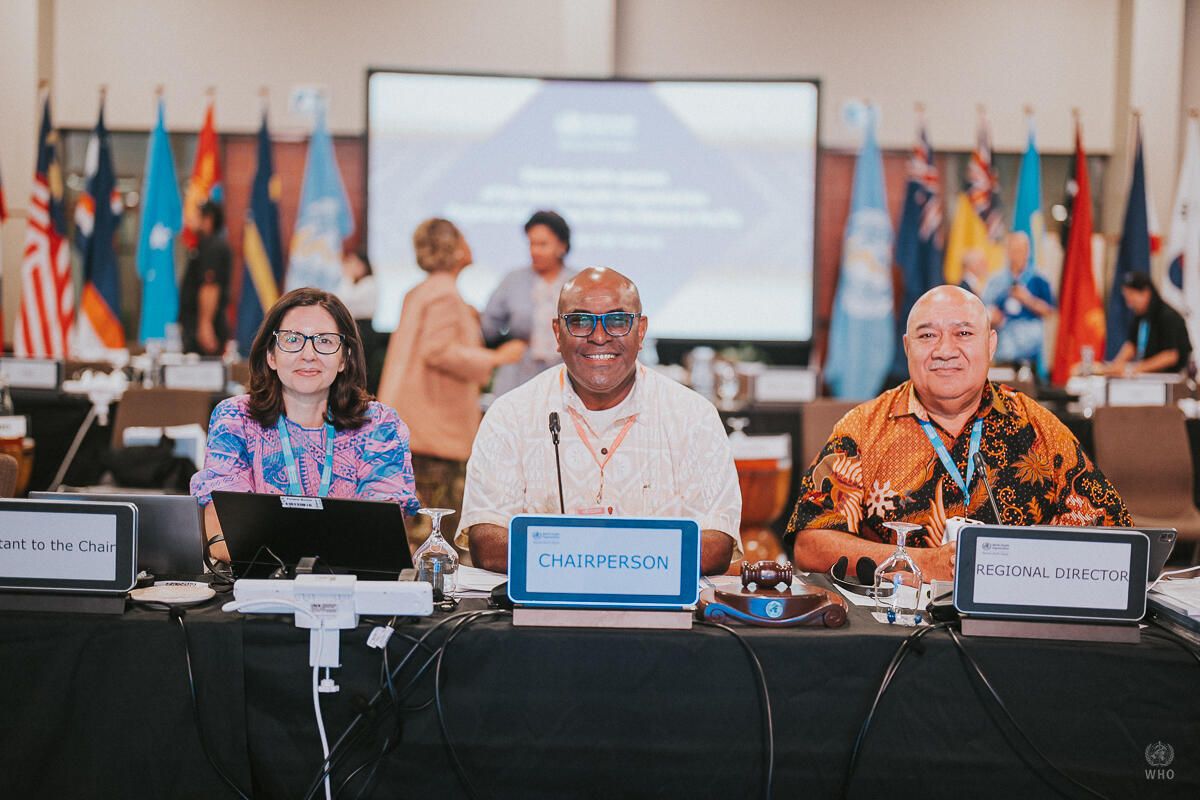
Dr Ratu Atonio Rabici Lalabalavu (centre) with Dr Saia Ma'u Piukala (right) at the World Health Organization's Western Pacific Regional Committee. Photo/WHO/John Kelly Halina
A stronger Pacific voice
Dr Saia Ma’u Piukala, WHO Regional Director for the Western Pacific, says safer, affordable, and accessible surgery must be part of every country’s health plan.
“Every operation should be safe, every patient protected from catastrophic costs, and every health worker equipped to deliver the best care,” he says.
Viñals Torres adds that having a Pacific leader at the WHO has strengthened the region’s voice and created momentum for collaboration.
“With several Pacific nations expressing interest in hosting future regional committee meetings, it shows that the Pacific sees WHO as one of the key partners to strengthen their health systems. This is an opportunity to change gears and make the systems more performant in the sub-region.”
The World Health Organization’s Regional Committee concludes in Nadi on Friday, 24th of October.